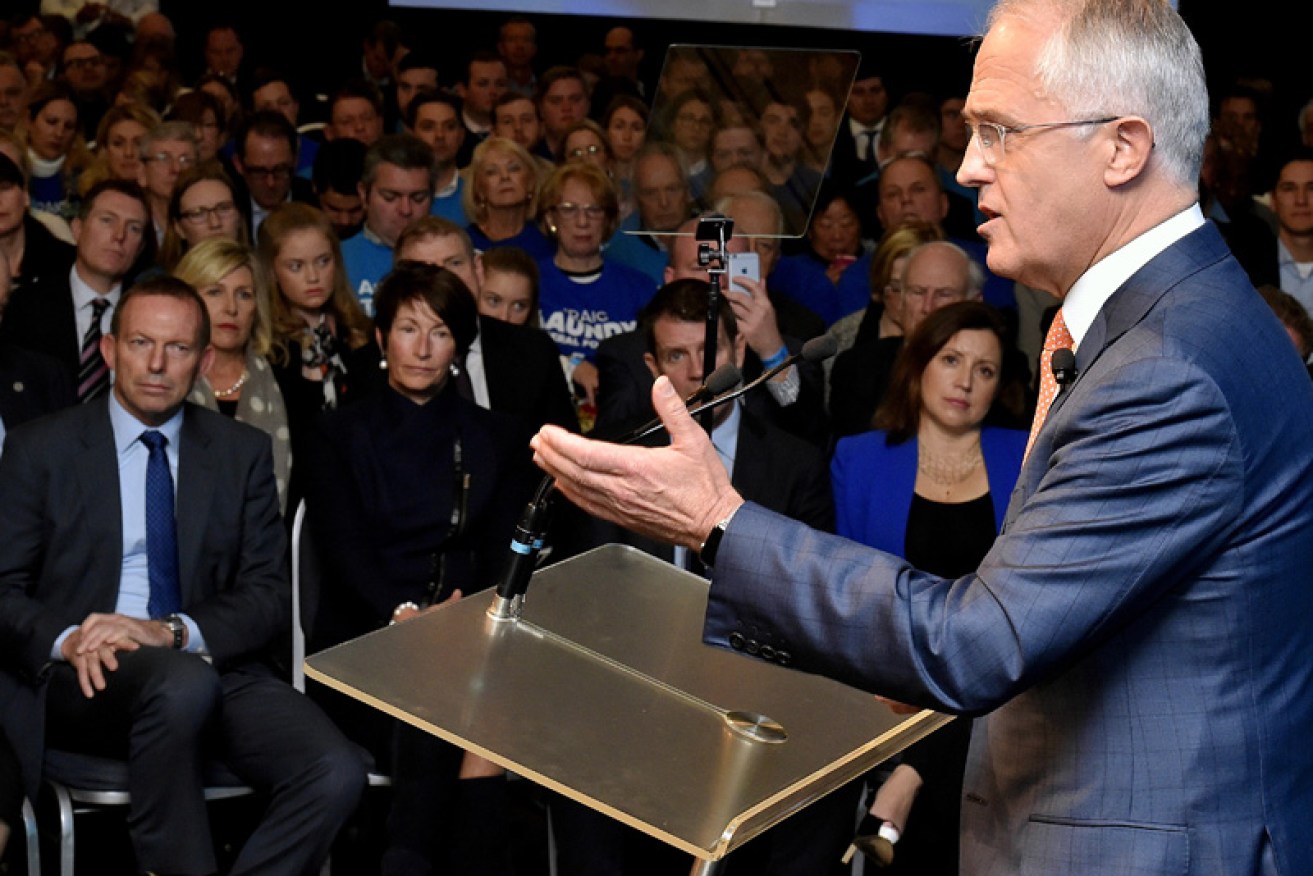Turnbull government risks trading super benefits for the wealthy few


The PM must convince party dissidents to save super revenues. Photo:AAP
Coalition dissidents trying to force the government to go soft on superannuation changes are making proposals that could cut hundreds of millions from the budget but would only benefit about 0.05 per cent of Australians with super, a report from think tank The Grattan Institute has highlighted.
Grattan CEO John Daley told The New Daily that the government’s package was relatively modest despite the political heat it is generating.
“You could very easily take more out of it (in super expenses) than they are targeting,” he said.
The government’s proposed package will save the budget $770 million by 2019-20. Coalition critics, including Tony Abbott, Senator Eric Abetz and Nationals member George Christensen, are aiming at the proposed after-tax contribution cap of $500,000 backdated to July 1 2007, demanding it be increased by 50 per cent or even doubled.
That could cost the budget $250 million to $550 million over four years, according to Treasurer Scott Morrison. And what’s more, such changes would be a benefit that goes only to a maximum of 80,000 people.
That’s a minuscule 0.042 per cent of the 18.75 million Australians Grattan estimates have super accounts.
Grattan’s work highlights how sensitive the revenues from the after-tax cap are. If Labor’s policy of bringing forward the cap to May this year were introduced, Grattan estimates it would give up $230 million of the $250 million the measure would deliver by 2020.
Not many would be hit
Overall, Grattan estimates that the package would affect 4.2 per cent of those with super. The Association of Super Funds of Australia estimates that figure at nine per cent but estimates only 14 million Australians have super.
The report demonstrates that even if the government’s package is implemented completely, it will still see the vast majority of super tax benefits flow to the top 20 per cent of income earners.
Grattan also looks at individual reform measures to work out who will benefit.
Plans to cut pre-tax contribution levels to $25,000 from $30,000, or $35,000 for those over 50, have been criticised for reducing the opportunities for carers, and women in particular, to build up super balances after spending time out of the workforce.
Few can afford to top up
However the report says “at present, just two per cent of women are on course to contribute more than $25,000 in 2017-18, compared to four per cent of men. Of those that make such large contributions, around two-thirds are among the top 20 per cent of income earners, most of whom are unlikely to ever qualify for an Age Pension”.
Grattan uses the same arguments to oppose the “carry forward” provisions that would allow those with super balances of less than $500,000 to bulk up their super by rolling up to five years of unused caps into a pre-tax contribution. This again would benefit a well-off minority.
Labor has a plan
Grattan also highlights Labor’s super policies which will produce savings of $1.32 billion above the government’s plan. Labor will make some significant gains in a couple of areas.
One is reducing the income threshold for the 30 per cent tax on super contributions from the government’s planned $250,000 to $200,000, delivering $500 million in savings, compared to $200 million for the government’s plan.

Grattan Institute CEO John Daley. Photo: AAP
“If you drop the cap from $300,000 to $250,000 as the government plans, you get a lot less savings than if you cut it to $200,000. A lot more people earn between $200,000 and $250,000 that between $250,000 and $300,000,” Mr Daley said.
Labor’s other big saving comes from preventing all workers, not just the self-employed, to make personal pre-tax contributions. That saves $750 million but Grattan says it is not an equity issue and all workers should have the same rights in this regard.
Negotiations on the shape of the final package are still going on in the government with one dissident Liberal telling The New Daily that “no firm proposal has yet emerged”.
Independent Tasmanian member Andrew Wilkie, whose agreement will count for passage of the legislation, told The New Daily: “I haven’t been briefed by the government on their super changes yet.”
“I will not seek a briefing on super until the Government has decided what its policy actually is.”
Click here to see The New Daily’s comprehensive report on the government’s super reforms.









